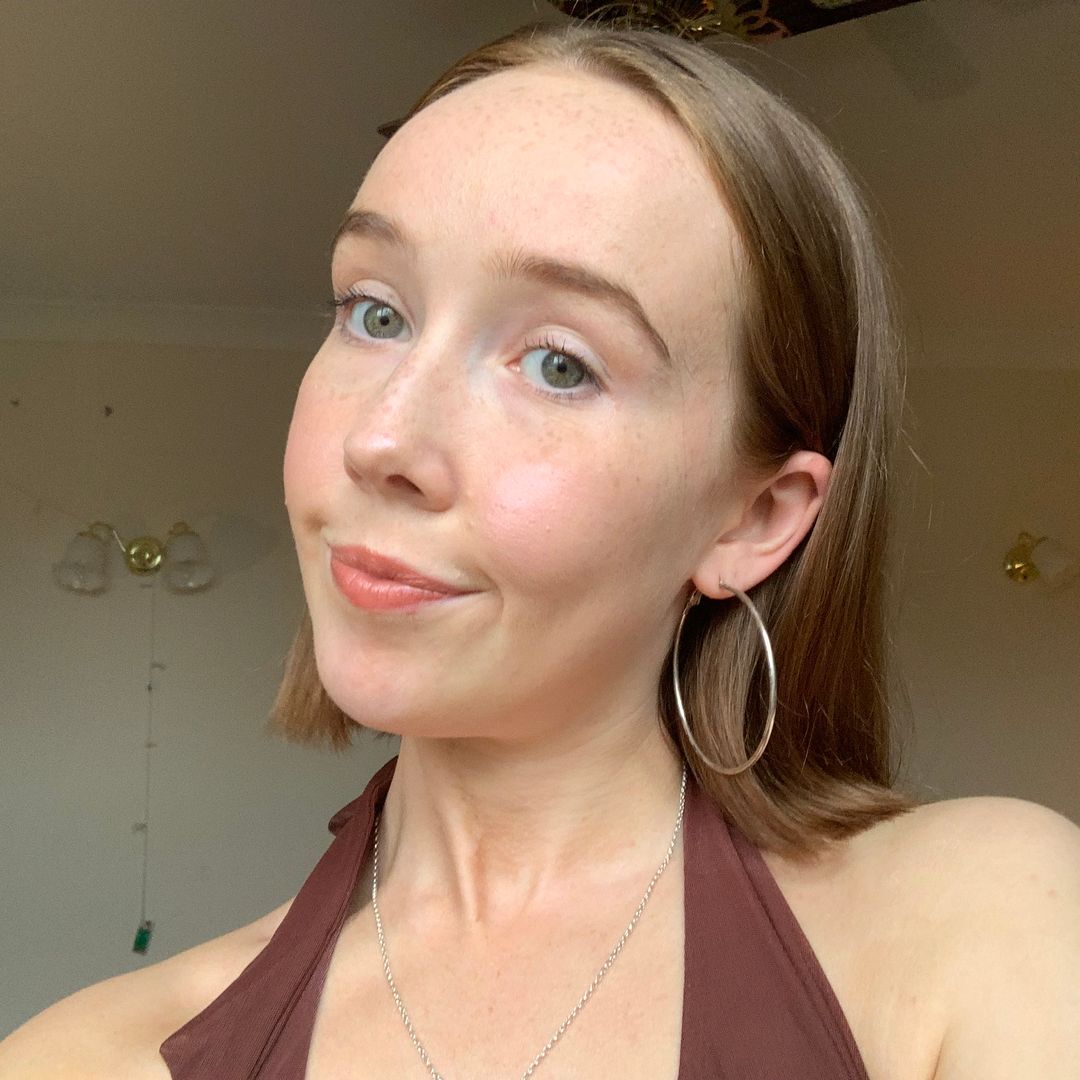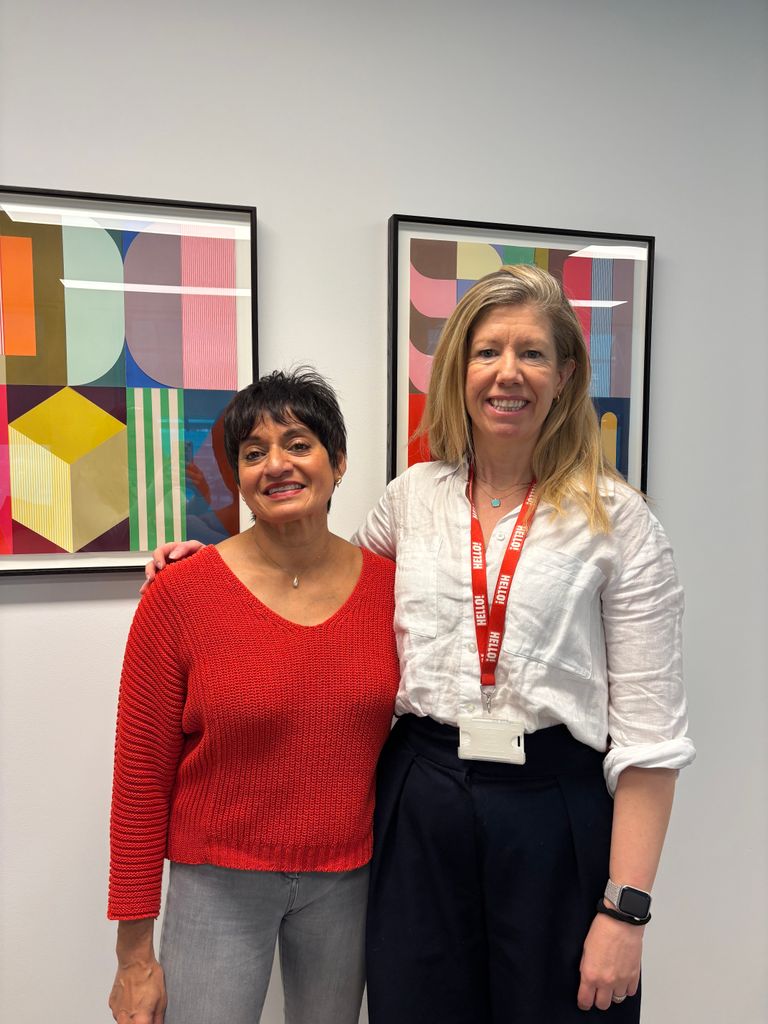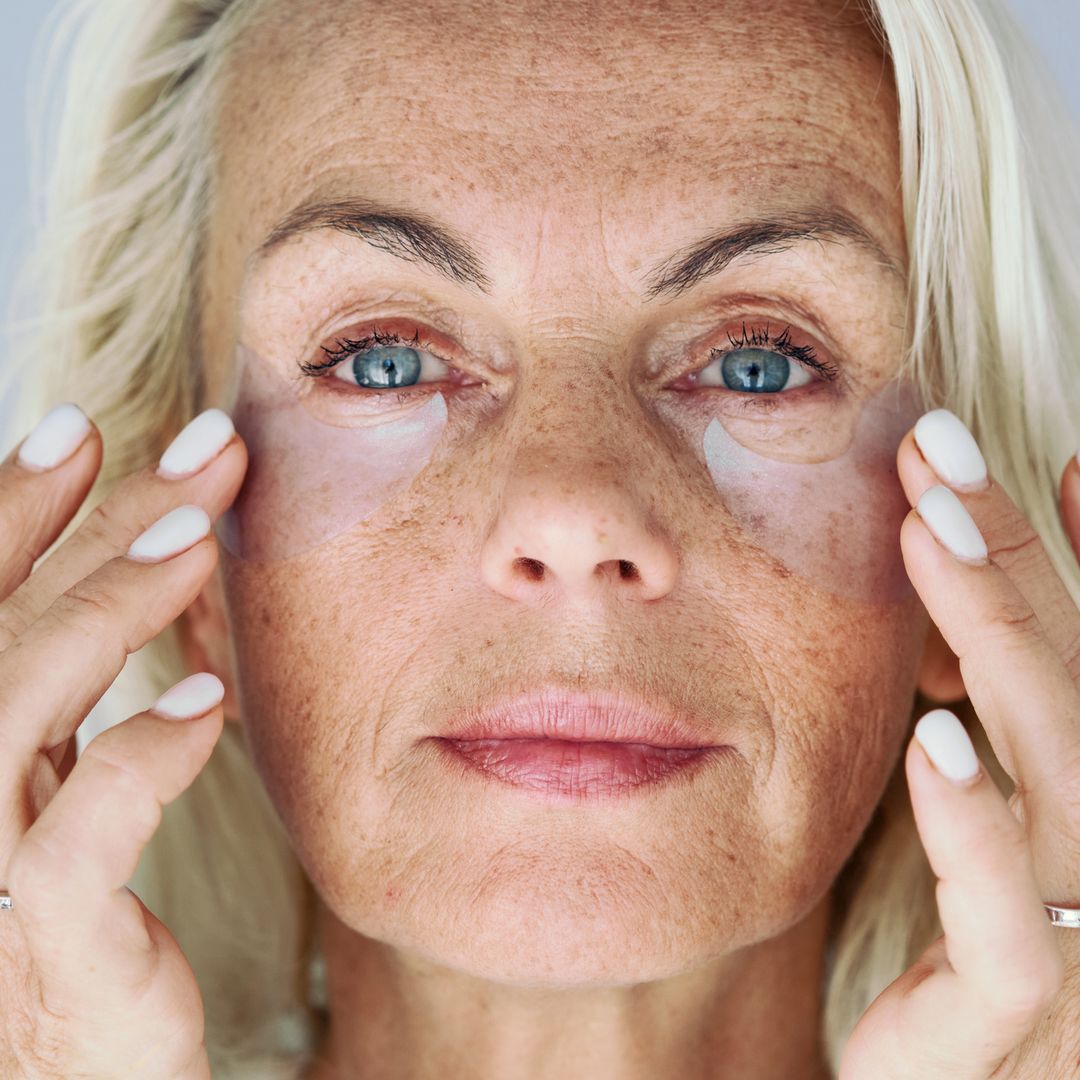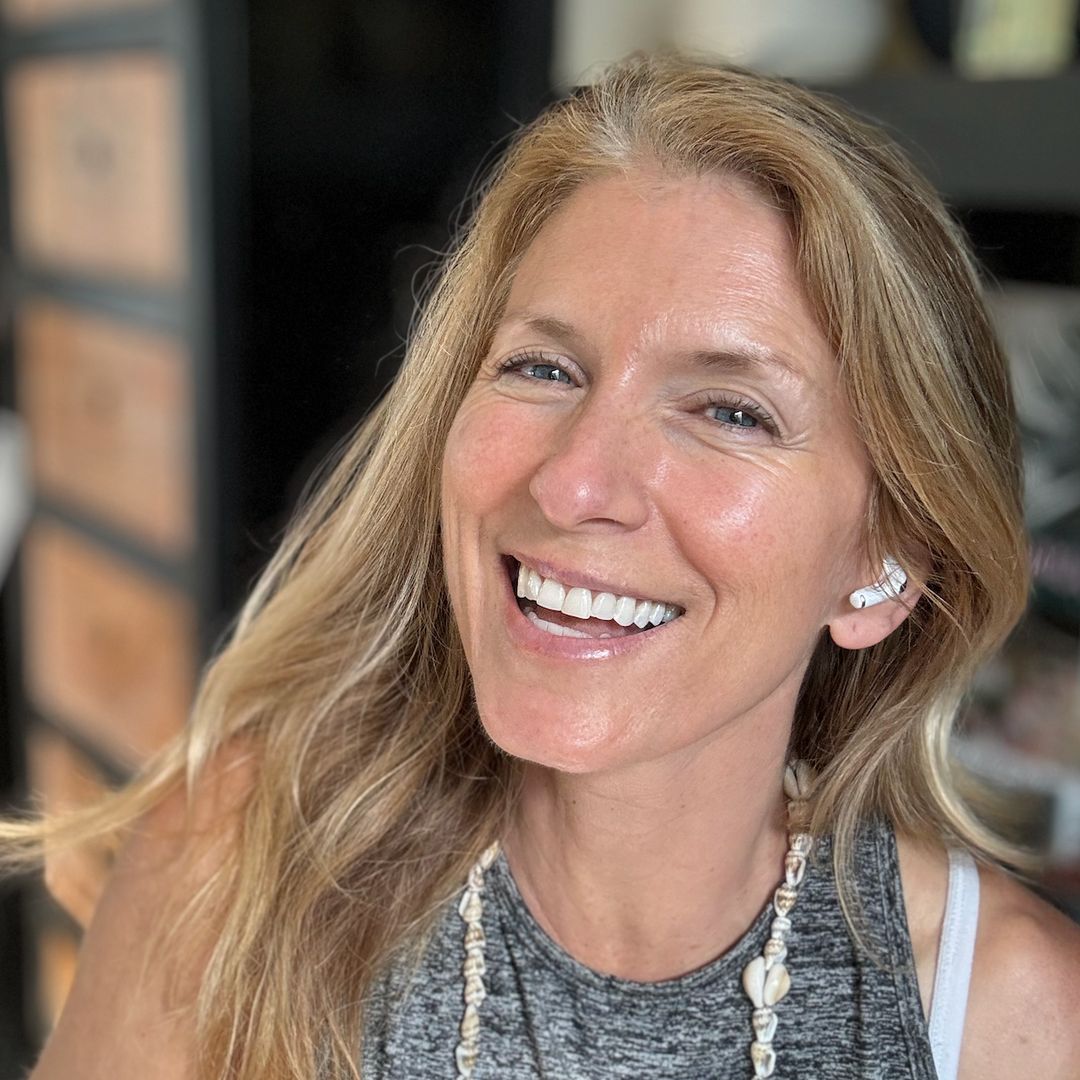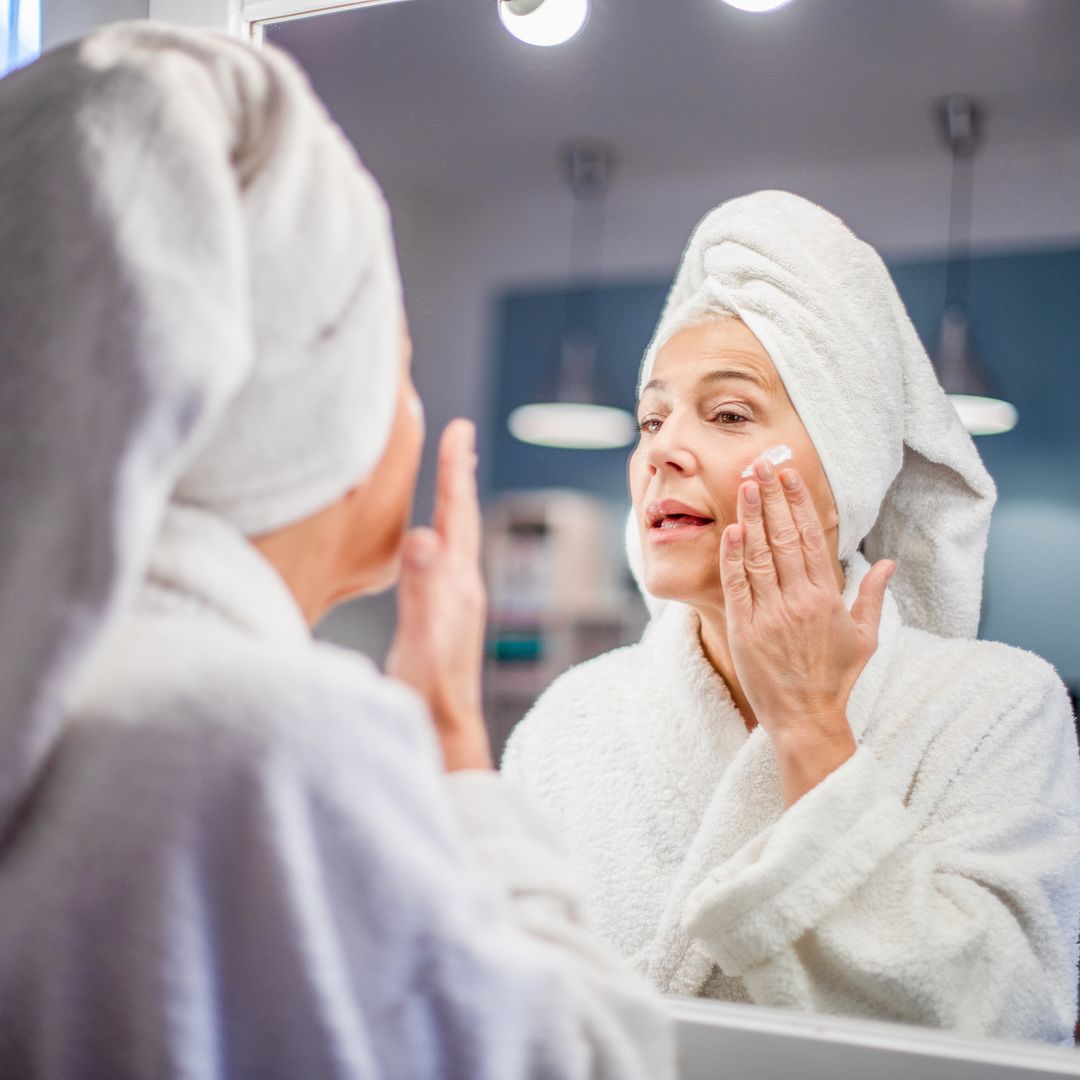Here at HELLO! we pride ourselves on opening up conversations around menopause, busting taboos and working to make it a topic all women are comfortable talking about.
With this in mind, we wanted our midlife colleagues to be as well equipped as our readers when it comes to managing perimenopause and menopause, and the trials that come with it. To help team HELLO! navigate these challenges, we welcomed sleep expert Dr. Nerina Ramlakhan to our HQ to offer her advice to those struggling with perimenopausal sleep symptoms.
Who is Dr. Nerina?
Dr. Nerina is a psychologist, sleep therapist and author who has been helping people sleep better for almost 30 years. After being hospitalised in a psychiatric clinic in her 30s, she embarked on a healing journey, creating her sleep methodology for getting the best night’s rest - and wanted to share it with others.
Read on for her essential advice...
5 tips for sleeping better
1. Timing is everything
How your start your day is as important as how you end it, Dr. Nerina says. Within 30-45 minutes of waking up, she recommends eating a rich, nutritious breakfast. The magic tip is to feel fuelled before hitting the busy commute or opening your laptop.
Sometimes breakfast can feel repetitive and boring. For inspiration, one of Dr.Nerina's delicious go-to breakfasts is a: ''Huge pot of quinoa porridge, chia seeds, steamed apples chopped up. I put dollops of full-fat Greek yogurt into that, chopped nuts and nut butter drizzled over.'' She suggests energy top-ups throughout the morning such as toast or a boiled egg to keep energy levels up.
2. Don’t substitute caffeine for food
Bad news for latte lovers who prefer to sip a coffee than tuck in to breakfast. Dr. Nerina recommends no caffeine after 2 pm, to ensure the sympathetic nervous system is not disrupted. The optimal amount is one cup of coffee (or tea) after eating breakfast. This ensures blood sugar levels remain solid and hot flushes are kept at bay.
3. Drink 2 litres of water every day
Dr Nerina stressed the importance of drinking two litres of water to improve sleep. She explained that finding time to look after our bodies is the priority, so no matter how busy we are, we must keep drinking.
4. Rest before sleeping
Dr. Nerina emphasises the importance of resting before heading off to sleep, meaning it’s good to aim to be in bed by 9:30 pm. It is always so tempting to check messages and emails in the final few moments before shutting our eyes however, Dr. Nerina says otherwise. It can be hard to tell the body to slow down for the day but it’s a process of changing the body's routine: ''Once you start training the body to receive rest, it becomes easier.''
5. Use a separate clock
Get your phone out of your room and replace your digital device with a clock.
Nerina says: ''Get your phone out of the room, switched off, charging in another area of the household.'' She stresses the importance of creating a ''safe'' sleeping zone for the body and mind, to encourage comfort before going to sleep.
By keeping your phone out of your room there is less chance you will ''slam back into your sympathetic nervous system.'' And the final hardest trick? Don’t look at the time when you wake up in the night, instead use meditation to help stay grounded and drift back off.
To read more of her work or for more understanding of how to understand your sleep patterns, Dr Nerina has published four books which can be bought on Amazon:
Finding Inner Safety: Find Safety
Fast Asleep, Wide Awake: Discover the secrets of restorative sleep and vibrant energy
The Little Book of Sleep: The Art of Natural Sleep
Tired But Wired: How to Overcome Sleep Problems: the Essential Sleep Toolkit
She also has her sleep coach course program which can be found on her website, designed to help people.

